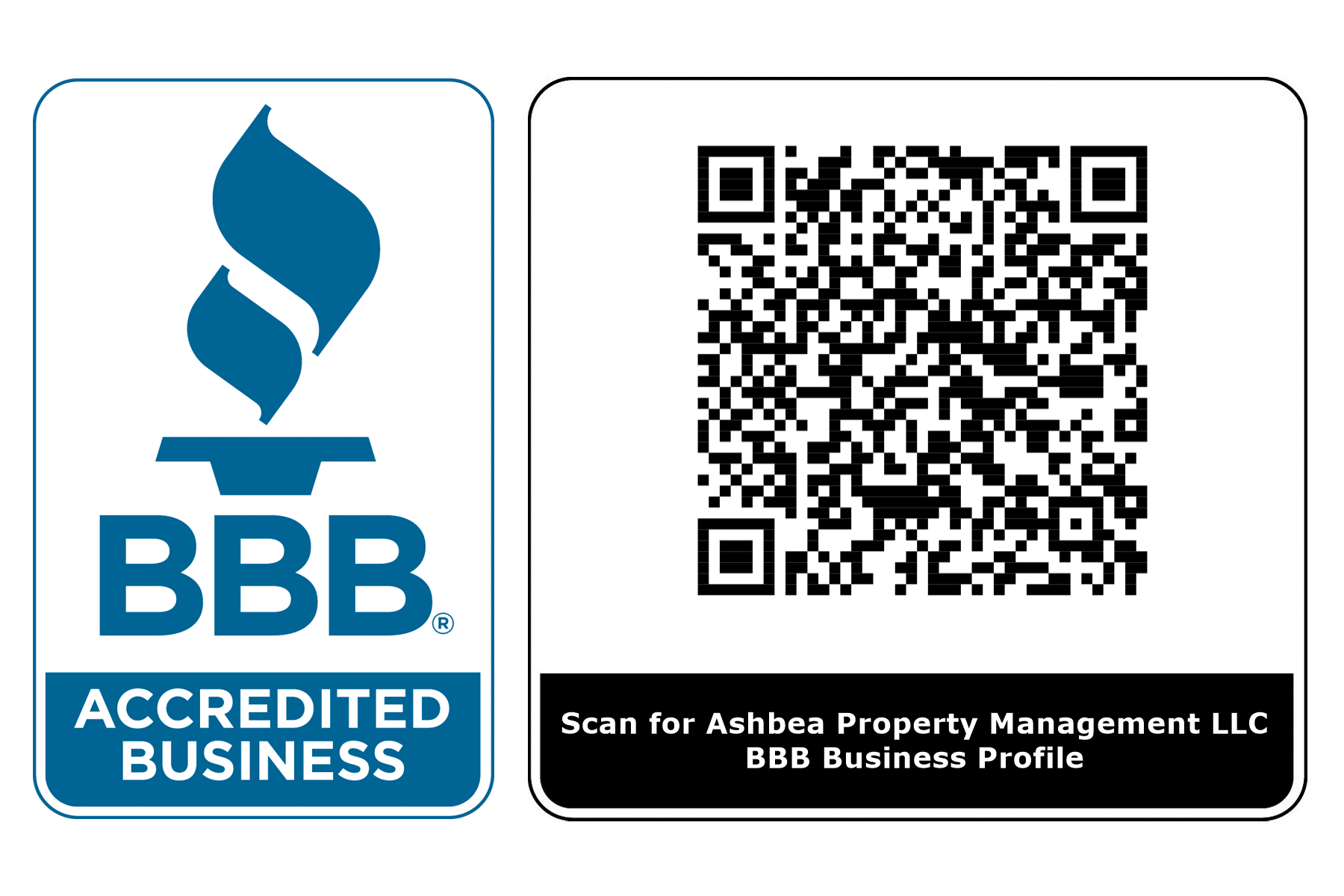Helpful tips For Preventing Mold In Your Residence
Suzanne McClellan • April 22, 2021
Here are some helpful tips I found for preventing mold in the residence:
What makes a room mold-friendly?
Mold only grows and thrives in spaces that present its ideal living conditions, especially basements, bathrooms and kitchens.
To prevent mold from forming and continue growing, it’s fundamental to address the elements causing a certain environment to become mold-friendly.
Simply cleaning up a moldy area won’t be effective on the long run. Mold will eventually grow back.
Mold that is easy to see and smell (molds generally smell musty and earthy) indicates an advanced state of mold growth. Living spaces where mold is easily visible must be treated as soon as possible.
Moisture and ventilation are the factors to consider first when aiming to eradicate a mold problem. Piping, HVAC and insulation should then become some of the first elements to inspect upon discovering mold.
Preventive maintenance projects can help you achieve a safe and mold-proof space while also addressing lingering maintenance issues that you might be overlooking.
7 basement mold preventative maintenance steps:
Basements provide ideal living conditions for mold to grow and thrive. They are dark, humid and not ventilated. Low air flow and high moisture are the main culprits aiding mold to form.
1. Monitoring humidity levels. The more humid a basement is, the more mold-friendly it becomes. Our experts recommend utilizing a hygrometer to measure humidity levels. Make sure they do not surpass readings of 45% or higher, which can indicate excessive humidity.
2. Reducing high humidity levels via insulation. It is important to check the insulation of all piping located in proximity of the basement. Make sure to have a professional plumber repair any loose insulation or leaks. Second, exposed pipes – which typically exhibit condensation during the cold seasons – should be insulated by a professional, which removes extra moisture.
3. Reducing high humidity levels via water drainage. It is fundamental to have an effective water drainage system. Direct water away from the property: if your property is already experiencing flooding and poor drainage after rain and seasonal weather, it is a clear sign that the property’s drainage system is ineffective, which could lead to even more severe structural issues.
4. Reducing high humidity levels from appliances. Appliances like washers, dryers, heaters and air conditioners should have their exhaust systems be checked to guarantee that they are properly functioning. They should be directing exhaust away from the property’s interiors and pushing moisture outside.
5. Avoid moisture-absorbing flooring. Carpet and wooden flooring absorb moisture and remain damp. This creates the perfect living condition for mold. It also contributes to the overall humidity of the space. It is best to substitute carpet and wooden flooring with more impermeable flooring, such as tiles, linoleum, or natural stone.
6. Improve ventilation. Having an exhaust fan installed allows to proper ventilation of basements. It is also recommended to open windows regularly to air out the space. Our experts recommend hiring an HVAC specialist. The specialist can perform an evaluation of the rental property’s ventilation capacities and suggest necessary improvements.
7. Bonus Tip. Inform tenants about why being mindful of humidity and ventilation is essential to ensure optimal mold prevention. Very simple steps can be taken by tenants to avoid creating mold-friendly conditions. Our mold experts suggest avoiding drying clothes and growing houseplants in the basement, which contributes to raising humidity levels and welcoming mold growth.st goes here. To edit this text, click on it and delete this default text and start typing your own or paste your own from a different source.
6 bathroom mold preventative maintenance steps:
Bathrooms present plenty of damp spaces for mold to growth. Resolving lingering moisture is the first step for preventing mold.
1. Monitoring humidity levels. Just like for basements, the more humid a space is, the more mold-friendly it becomes. Humidity levels over 45% indicate excessive indoor humidity.
2. Repairing leaks. Considering the significant volume of water being used daily, bathroom fixtures and piping can easily develop leaks. Those leaks will result in moist areas that welcome mold growth. It is important to promptly turn to a professional who can repair the leaks. Additionally, it is always wise to schedule seasonal plumbing checks. You want to make sure that pipes are in good shape and no hidden leaking is taking place.
3. Improving ventilation. Moisture can linger if the ventilation system is not allowing air to circulate. Circulation can speed up drying times for residual water in showers, bathtubs, sinks and any other “splash zones.” It is ideal to have an HVAC specialist assess the ventilation efficiency of your property’s bathroom. Ensure the bathroom exhaust fan is working properly.
4. Replace moldy caulking. If you notice mold growing on the caulking or sealant of bathtubs and showers, our experts encourage completely stripping the moldy layer and having a professional re-caulk the area. This will ensure that the mold growing in the area will be completely removed, thus eliminating the likelihood of leftover spores starting a new growth.
5. Avoid moisture-absorbing furnishings. Furnishing and decorating bathrooms with moisture-absorbing materials can impact the overall level of moisture. It’s best to avoid wallpaper and turn to a specialist for sealing unsealed wood countertops.
6. Bonus Tip. Encourage tenants to use exhaust fans when they take showers or baths. This will allow for condensation and lingering moisture to be removed. Additionally, it’s best if bathtubs and showers are kept as bare as possible. Mold can grow and hide in damp loofahs, sponges, brushes and bottles of shampoo and shower gel.
6 kitchen mold preventative maintenance steps:
Abundant plumbing and cooking-related moisture increase the availability of moist spaces for mold to easily grow.
1. Actively check for and repair leaks. Leaking sinks and pipes create new moist areas for mold to easily grow in. It’s important to ensure that leaks are repaired as soon as possible. It is ideal to schedule seasonal rental property maintenance checks to make sure that there are no hidden leaks or damaged, leak-prone pipes in the property.
2. Check cabinets. Kitchen cabinets that house or are found in proximity of main pipes are likely to entrap moisture. This is true especially if they are made of moisture-absorbing material, like unsealed wood. We recommend having a plumbing professional evaluate whether the location of pipes and the material of kitchen cabinets are adequate for your kitchen.
3. Check the garbage disposal. Older and faulty garbage disposal systems will often fail to allow wet food scraps to be properly flushed and disposed. The garbage disposal then becomes a dark, wet, and organic material-filled space for mold to grow in. Repairing a broken garbage disposal as soon as it exhibits issues can prevent the mold.
4. Seal permeable surfaces. Countertops and cabinets generally take up the majority of the space in the kitchen. Some materials are prone to absorbing moisture more easily than others. Choosing materials for your countertops and cabinets is an important process. Our experts find that wooden countertops – or butcher block – have been known to rot due to lingering moisture. This can be prevented by regularly sealing the countertops. Overall, it’s always recommended to consult a maintenance professional about the maintenance needs of your rental property’s kitchen countertops and cabinets. Following the suggested procedures and checkups is the best way to avoid wear and tear on the long run.
5. Bonus Tip. Remind tenants that cleanliness should always be a priority when it comes to the kitchen. Making sure that dirty dishes, food scraps and food in general are not left out will decrease the likelihood of mold to grow on organic material. Spills – especially under and behind fixtures and countertops – should be cleaned up promptly. Food should be always stored mindfully.
Summary:
Mold preventative maintenance is a serious issue. Mold can compromise the health of tenants and the overall safety, appeal and look of a rental property. Molds and fungi can develop into parasitic growths harmful to humans in their indoor living spaces. The Centers for Disease Control and Prevention (CDC) warn about the dangers of mold exposure. Mold can significantly worsen respiratory conditions and cause severe rashes, irritation and infections for those with weakened immune systems or respiratory conditions. The Institute of Medicine (IOM) similarly linked indoor mold exposure to the development of coughing, wheezing and reported difficulty with breathing by otherwise healthy people. Not only is this harmful, but it can quickly get out of hand: mold can grow rapidly when it is not addressed immediately.
Share this post
Even though we are not officially in the Summer Season, yet, it feels like Summer. Here are some tips to help survive the Summer heat: Use your air conditioner, if you have one. If you do not have an air conditioner, there are a few tricks to cool down the home. Open your windows at night to let the cooler air into the home. When the day begins to heat up, close the windows and close the blinds to keep the sun from shining in and heating up the home. If you have ceiling fans or any portable fans, turn them on. If you have a pet, remember to keep them cool, and indoors. If you have a yard, remember to water the flower beds around the house. It is important to keep the plants around the house watered and green. Green plants around the house can be a barrier to a fire. A soaker hose is very efficient for flower beds. Soaker hoses use less water and all the water is directed to the roots of the plant.
The Garbage Disposal is a hard working appliance in the Kitchen. We often take if for granted it will grind up everything. The disposal has limitations. Do not put the following items down the garbage disposal: Artichokes Egg shells Asparagus Grease Avocado pits Lettuce Bones Onion skins Carrots Pasta Celery Peach pits Coffee grounds Potato peels Corn husks Raw meat with bones
It is so relaxing to spend a evening by candlelight. There can be some annoying side effects, though. The type of candle you use can make the difference. Paraffin candles are petroleum based products. They are full of toxic chemicals and additives, and are unhealthy to breathe. They can leave black soot on the walls and ceiling. They are also bad for your lungs. There is a great alternative, it is a Soy candle. Soy candles are: Biodegradable Non-toxic Burn 30 - 50 % longer Are healthy to breathe They do not leave soot on walls, ceilings, or your lungs Soy beans candles are beautifully crafted and come in a variety of aromas. Enjoy many relaxing evenings.
This is the time of year we think about the fireplace and chimney. At AshBea Property Management LLC we prepare for the Winter by having the wood burning fireplaces inspected annually in the late Summer or early Fall to make sure everything is up to code and safe to use. According to the National Fire Protection Association, the leading factor contributing to home heating fires was the failure to clean chimneys. How often should a chimney be inspected? Every year. New wood-burning installations such as fireplaces or wood-burning stoves should be checked midway through the first heating season to confirm everything is working properly. How often should a chimney be cleaned? Cleaning should be done as necessary — normally when there’s a minimum 1/8-inch of deposit in the chimney. An annual inspection will determine if any sweeping or repairs are needed. In some cases, it’s necessary to sweep more than once a year, especially if the operator, the fuel or the venting system are not properly matched. Why get a chimney inspected and cleaned in the first place? The combustion process deposits an acidic material that weakens masonry or metal chimneys, causing them to deteriorate prematurely. Significant buildup of creosote, a flammable material resulting from incomplete combustion, may catch fire and spread to the attic and other areas of the home. If a chimney is used infrequently, critters and birds can collect and nest there, blocking the chimney. Leaves, twigs, pine cones and branches can obstruct the chimney, too. High winds or driving rain can also damage chimneys. CSIA recommends that, as a general rule, a chimney should have a rain cap to keep out animals and water as these are the primary reasons chimneys fail. What should a professional chimney cleaning include? Sweeping the fireplace, checking the firebox, liners, smoke chamber and flue, chimney exterior and inspecting the appliance for proper clearances. Recommendations for proper operation or replacement of equipment and necessary repairs to equipment or structure. A video inspection. It may mean an additional cost, but it could detect hidden damage.
I manage my own properties, I don't need to hire a Property Manager. If this has been working for you then you are beating the odds. Do you know legally how to handle the many situations that may occur? The laws vary by County and City in Oregon. What if: A Tenant dies in your property. A Tenant dies or abandons a property and leaves a pet behind. Domestic violence by a Tenant to a member of the residence. A Tenant leaves a vehicle behind when they move. Collecting money from a former Tenant for damages and/or back rent. Eviction of a Tenant for various reasons. These are only a few of the many scenarios Property Managers handle frequently. You say, "Well that will never happen to me", but it could happen. If you are not handling situations legally with the proper forms and protocol, you could be opening yourself up to a lawsuit. So now, if you are considering hiring a Property Manager, why not hire one of the best in the area? AshBea Property Management LLC.
Disasters and emergencies take many forms, from severe weather to acts of terrorism. responding is easier if you prepare. I found this pamphlet the other day and found it very informative. If you are interested, please visit the American Red Cross at www.ready.gov Here are a few of the highlighted areas: 1) Make a plan, just in case. Make sure each family member knows what to do in an emergency. Review the family emergency plan every 6 months to see if changes need to be made. 2) Decide where to meet after a disaster or emergency. Choose a location outside your home, in case of a sudden emergency like a fire. 3) Prepare your home. Make a list of important numbers and keep the list by the phone, or put it into your smart phone. Plan escape routes to get out of the home. Stock up on emergency supplies. Make sure every family member knows where the emergency supplies are stored. 4) Have a disaster kit ready. Keep three days worth of water , food, medications, and any other essential supplies. Replenish and refresh emergency supplies every 6 months. 5) Connect with neighbors and community. Talk to your neighbors about how you can work together during an emergency. 6) Take action if disaster strikes. Follow the advice of local emergency officials. Remember to stay calm. Being prepared can help you get through emergencies and disasters. I am not trying to scare anyone, but I realized how unprepared I am in case of emergency, so I am going to implement these steps in my home.
We should all have a fire extinguisher in our kitchen, and other areas of the house. This is information from Safety Seal Net that helped me when I was looking on information on fire extinguishers. I thought it was worth sharing: When to Replace a Fire Extinguisher: Even if there's no expiration date, it won't last forever. Manufacturers say most extinguishers should work for 5 - 15 years, but you might not know if you got yours three years ago or 13. So how can you be sure it will fire away? Atlanta fir chief Dennis L Rubin recommends checking the pressure gauge monthly. " If the needle is in the green area, it's functional, If it falls anywhere else, the extinguisher is unreliable and should be serviced or replaced." For an older model without a gauge, have it checked by a professional annually. Replace or service an extinguisher right away if it's been used or if you notice any of the following: 1) The hose or nozzle is cracked, ripped, or blocked with debris. 2) The licking pin on the handle is missing or unsealed. 3) The handle is wobbly or broken. 4) The inspection sticker or hang tag, with a record of checkups and maintenance, is missing. Hope this information will help you as much as it did me.
First of all, sugar ants are attracted to easily accessible food. They can move from neighboring houses, and they can be brought in with stuff, furniture, and products. To avoid the appearance of sugar ants in the house, you must observe several basic rules: 1) Eat only in the kitchen or dining room, wipe away spilled food and sweet drinks (scout ants can find food and bring their relatives). 2) Store sweet foode (candies, cookies, jam) in a closed container or in a refrigerator. 3) seal all cracks and holes in windows and doors. 4) Don't leave dirty dishes overnight. 5) Treat the sink with vinegar to deter the insects from the water source. 6) Ants are omnivorous, so you need to deprive them of food. Make your food products inaccessible to the sugar ants. 7) Treat the outside foundation of the house with pesticide. It is much easier to prevent the appearance of pests than fighting them with chemicals and home remidies.
Hello: This year has flown by. It is hard to believe Fall is quickly coming upon us, again! Weatherizing your single family home, condo, townhome, or multiplex home is smart living. Quality insulation is one of the most cost effective ways to protect your home from the heat of the Summer, and the cold of the Winter. The better the insulation, the less your heating and cooling system needs to work to maintain a comfortable temperature indoors. This saves money and can add life to the heating and cooling systems. Energy Trust of Oregon has property tax incentives for property owners. Contact Energy Trust of Oregon directly, or have your Property Manager contact them for details. Enjoy the rest of 2019!
I attended a meeting with an Officer of the Police Department. Three tips that were given I am trying to pass on to everyone. 1) Place a "Beware of Dog" sign on any access to the backyard of the property. It is cheap and effective deterrent to prowlers. 2) The Officer also suggested leaving on lights that can be seen from the street and leaving the radio or television on if you are not home. Burglars prefer to rob places that are not occupied and look easy. 3) The Officer also recommended that you always lock your dead bolt, even when you are home. Some of the people in the meeting have had strangers walk up to their front door in the middle of the day and try it to see if it is locked. This is very scary! Hope you enjoy these tips and have a safe future!








